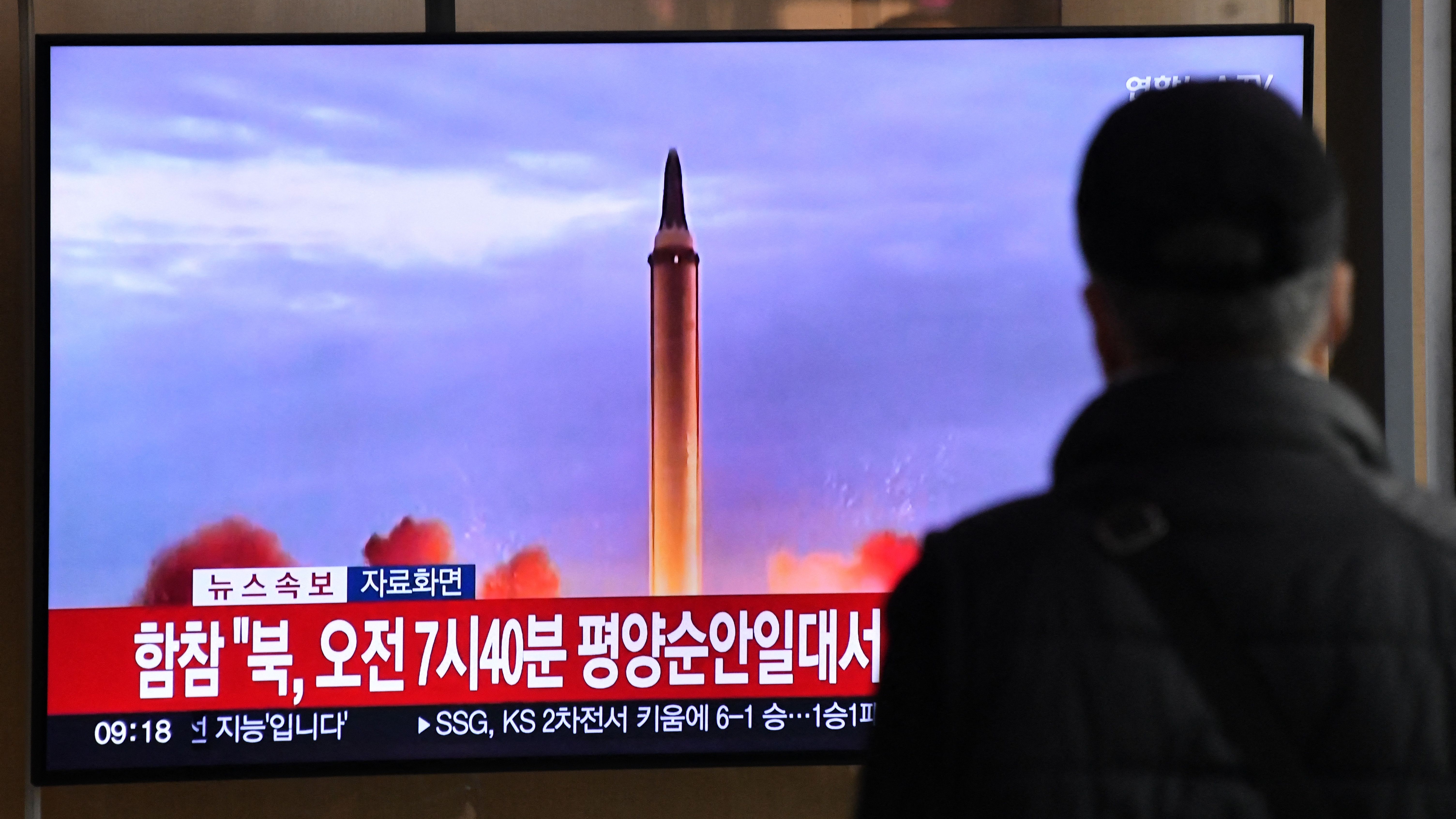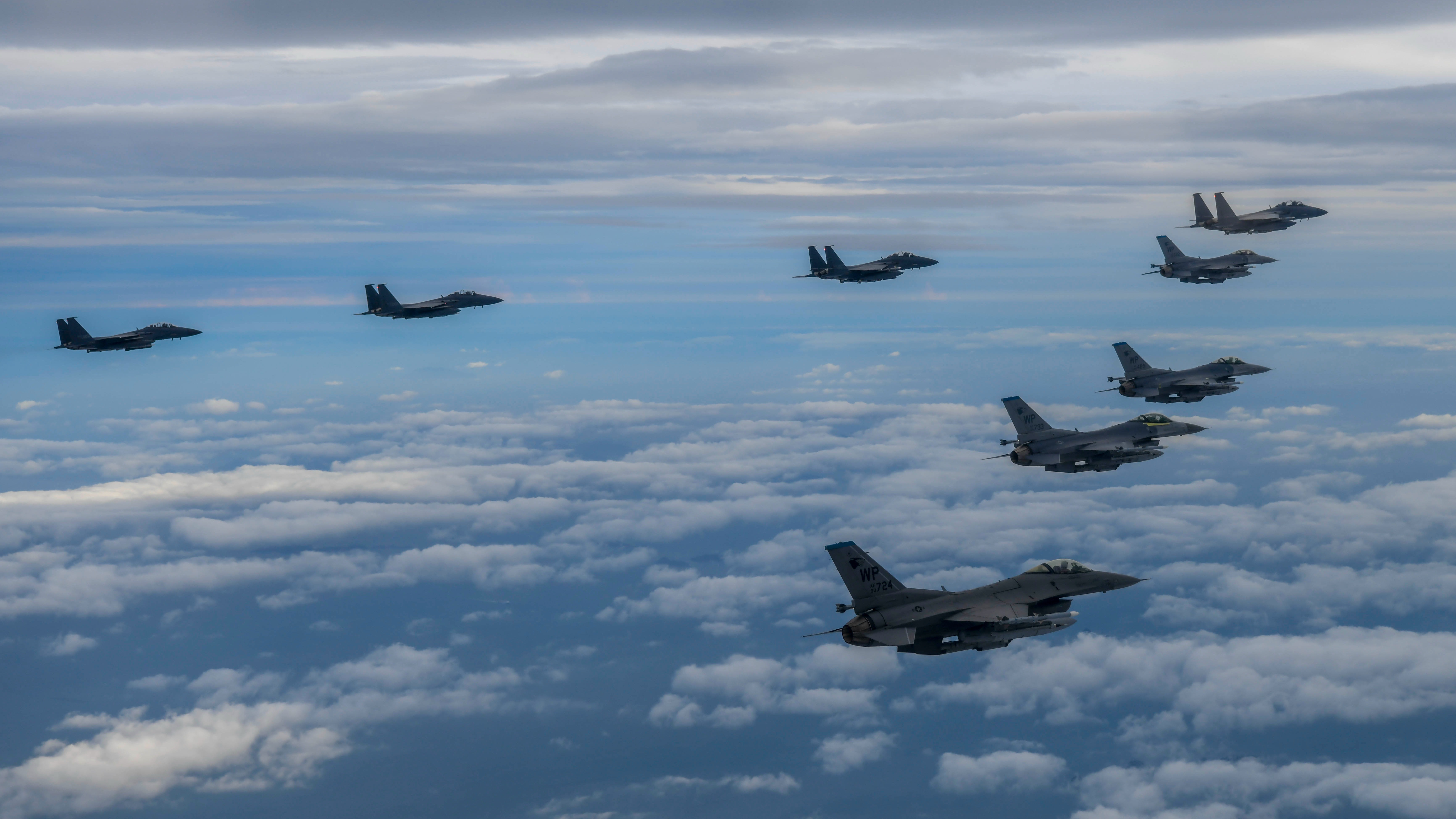Launch of North Korea's most powerful ballistic missile fails: reports
Thursday's liftoff followed a 23-missile barrage the day before.

North Korea launched yet another missile on Thursday (Nov. 3), this time lofting a powerful long-range vehicle, but the effort failed, according to media reports.
The nation launched a record 23-missile barrage on Wednesday (Nov. 2), perhaps as a show of displeasure with ongoing military exercises between South Korea and the United States. Those tests involved short-range missiles, however, while a brawnier vehicle took off on Thursday.
A "South Korean government source said officials suspect it was a Hwasong-17, North Korea's most advanced intercontinental ballistic missile," CNN reported. The test failed, according to that source, who spoke anonymously to CNN.
Related: North Korea's rocket and missile program (photos)
The Hwasong-17 has flown before. The intercontinental ballistic missile (ICBM) aced its debut test flight in March, according to the North Korean government. Western experts aren't so sure about that story, however; some think that the earlier mission failed as well, and North Korea covered it up via the subsequent launch of a different missile, the Hwasong-15.
North Korea's flurry of launches on Wednesday and Thursday continue a trend. The nation has flown more than 50 missiles already in 2022, according to NBC News,
The March launch — of a Hwasong-17, if you believe the North Korean government, or a Hwasong-15, if the skeptics are correct — was particularly noteworthy. That missile stayed aloft for 71 minutes and reached a peak altitude of 3,700 miles (6,000 kilometers), about 15 times the height of the International Space Station, before splashing down in Japanese waters.
Breaking space news, the latest updates on rocket launches, skywatching events and more!
One missile from Wednesday's 23-rocket barrage was the first to land south of a sea-border buffer area between North Korea and South Korea since the peninsula was split between the two nations in 1948, NBC News reported.
The latest test on Thursday, even though it apparently failed, prompted the United States and South Korea to extend their exercises indefinitely, the South Korean Air Force said in a statement reported by CNN.
The air force stated that "it was necessary to demonstrate a solid combined defense posture of the bilateral alliance under the current security crisis, heightened by North Korea's provocations."
The international exercises started Monday (Oct. 31) and reportedly include thousands of military personnel from the two countries along with 240 aircraft, according to the U.S. Defense Department. North Korea has been objecting to these exercises in statements all week.
Follow Elizabeth Howell on Twitter @howellspace. Follow us on Twitter @Spacedotcom or Facebook.

Elizabeth Howell (she/her), Ph.D., was a staff writer in the spaceflight channel between 2022 and 2024 specializing in Canadian space news. She was contributing writer for Space.com for 10 years from 2012 to 2024. Elizabeth's reporting includes multiple exclusives with the White House, leading world coverage about a lost-and-found space tomato on the International Space Station, witnessing five human spaceflight launches on two continents, flying parabolic, working inside a spacesuit, and participating in a simulated Mars mission. Her latest book, "Why Am I Taller?" (ECW Press, 2022) is co-written with astronaut Dave Williams.

